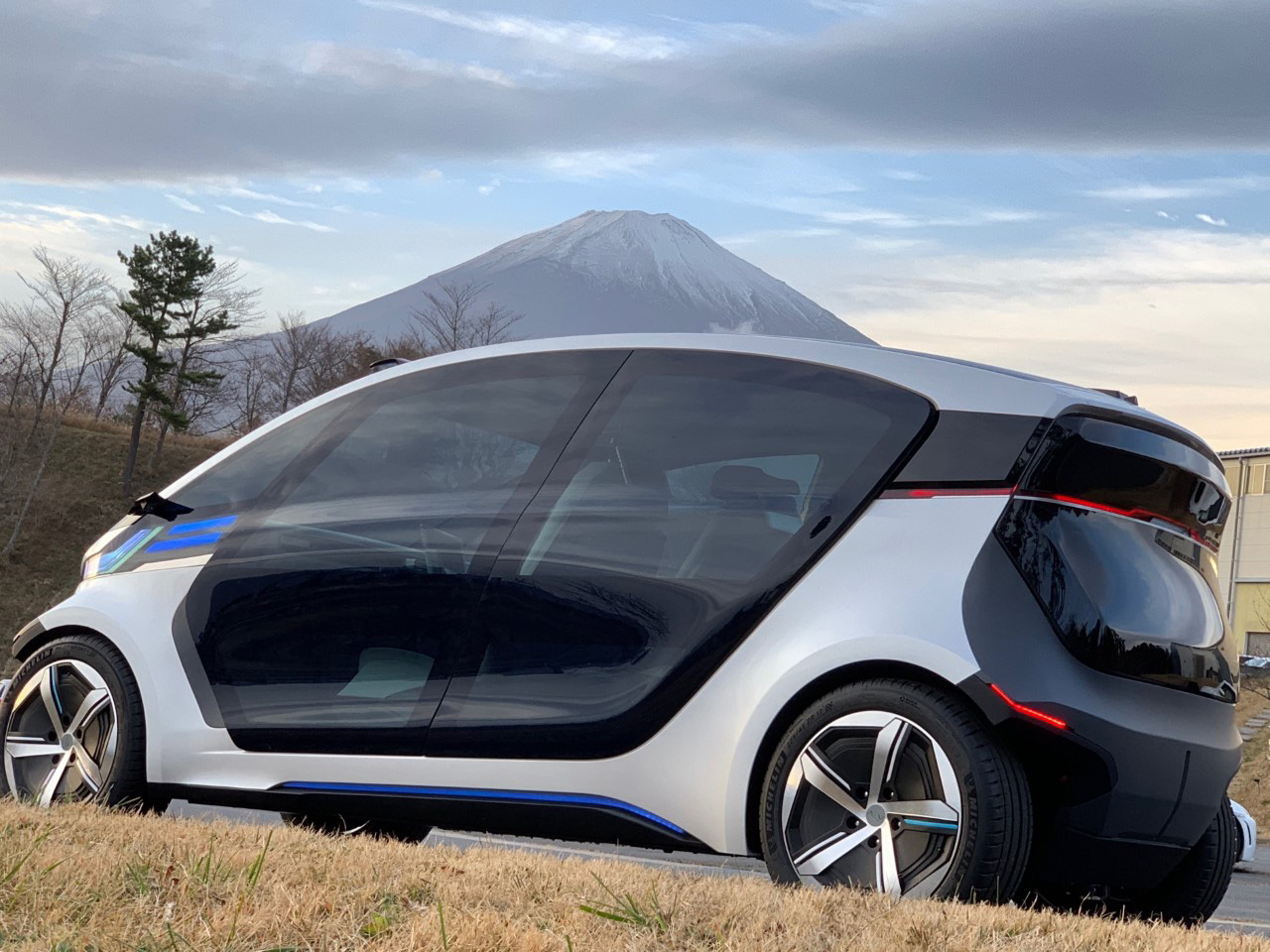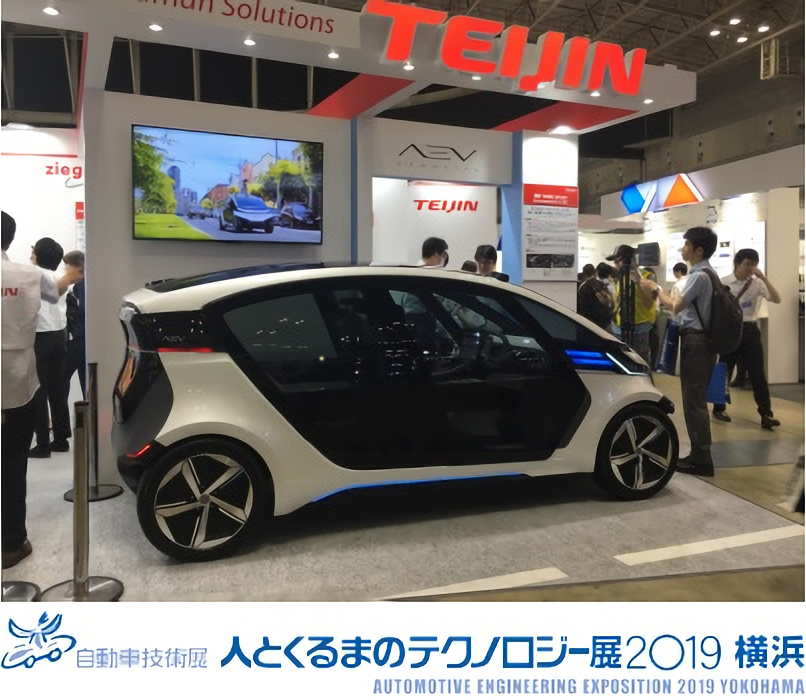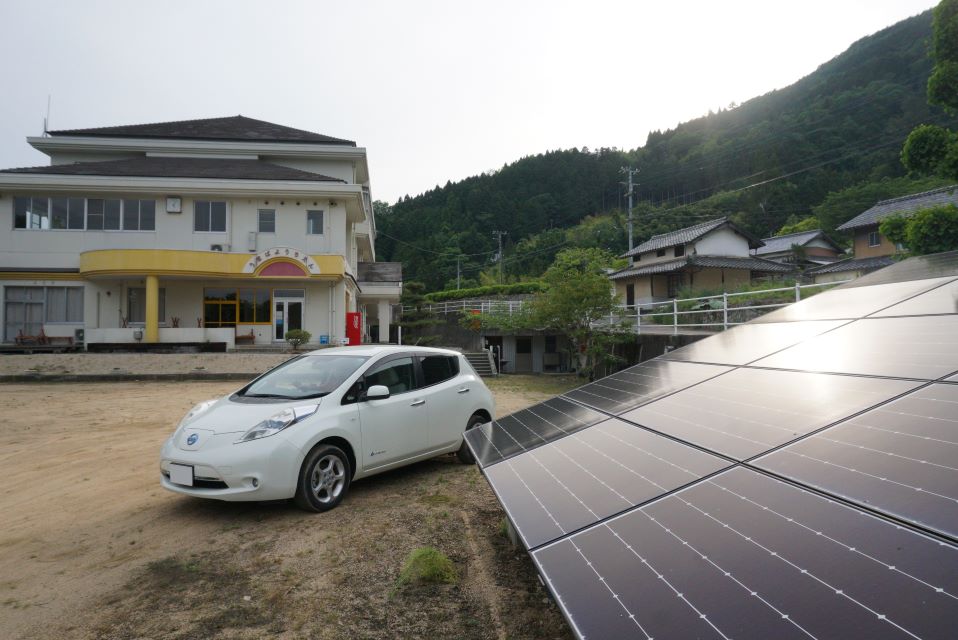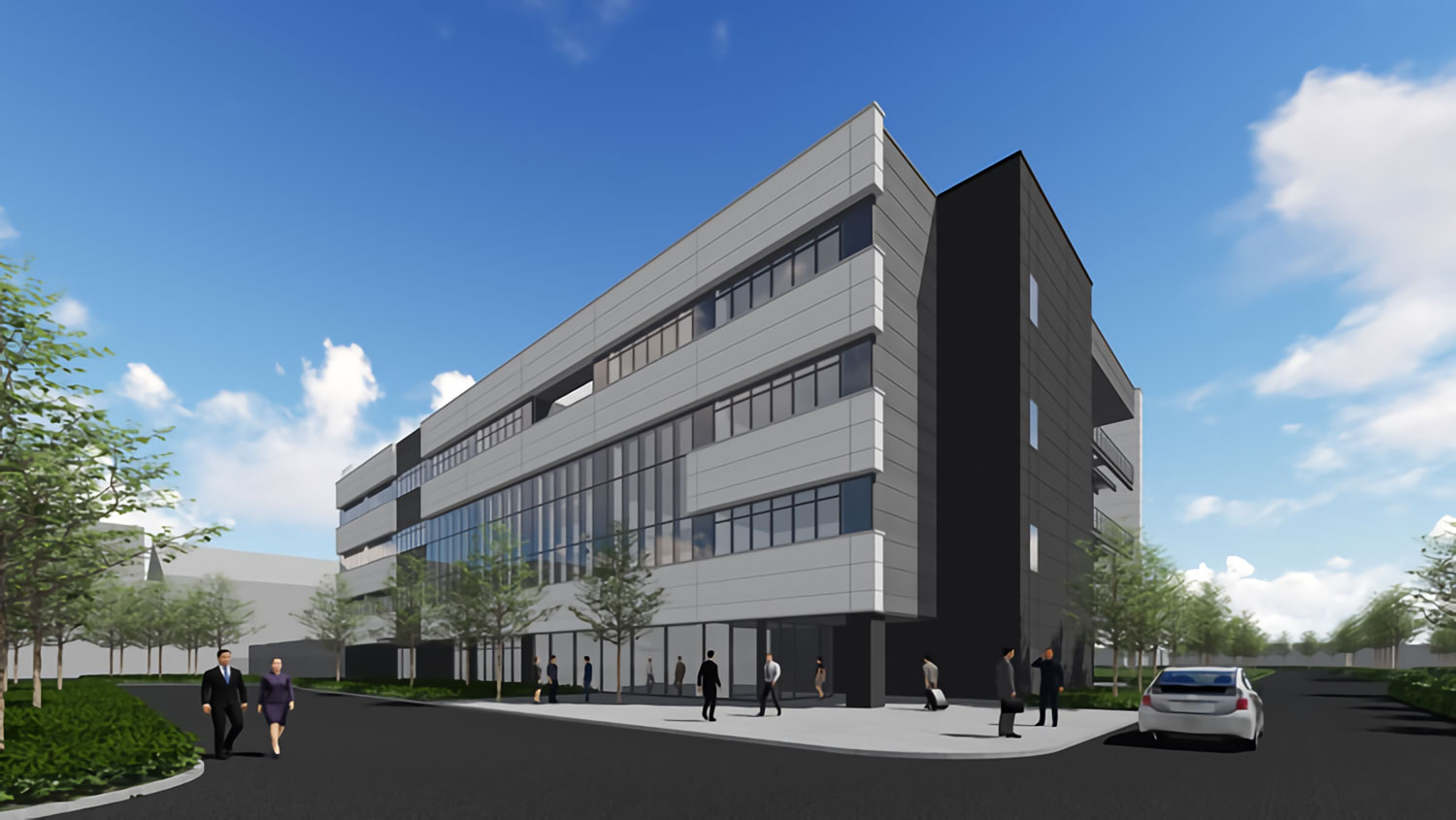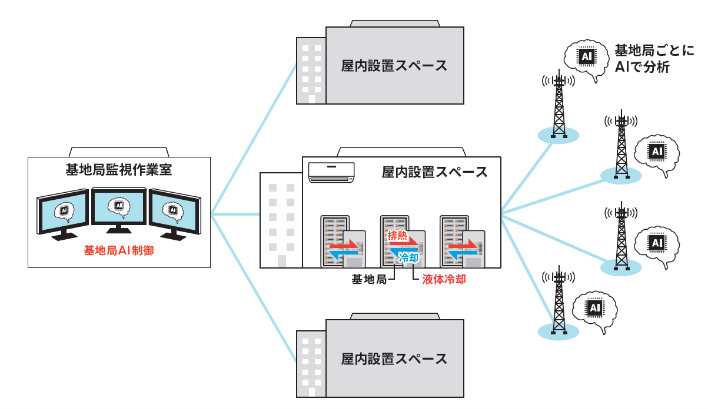Low Speed EV (LS-EV) development toward “Well to Wheel Zero Emission Mobility” and Challenge for improving a social services (QOL) by utilizing its platform
TEIJIN LIMITED
Outline
With the aim of realizing “Well to Wheel Zero Emission Mobility” to reduce total greenhouse gas emissions from fuel to driving, Teijin has been developing a Low Speed EV (LS-EV) collaborating with AEV Robotics (AEV) in Australia.
And, by specializing in the LS-EV, Teijin has been exploring the LS-EV’s possibility to develop into mobility services for the vulnerable public transportation users with utilizing the charge-free features that do not require a charging station, and social services such as using it as a personal transportation service, a backup power supply in case of emergency and so on.
Description
Aiming to realize "Well to Wheel Zero Emission Mobility", Teijin has been working with AEV Robotics, an EV venture company in Australia, to develop a LS-EV.
The major issues to be overcome in this challenge are 1) a high-efficiency EV platform, 2) a lightweight solution, 3) a solar power generation roof, and 4) autonomous driving technology.
Teijin is working on a light weight solution that utilizes a multi-material technology centered on the various composites and plastic glazing (plastic window). And, utilizing the knowledges and know-how gained through a technical support for Kogakuin University Solar Team, Teijin is also working on the development of lightweight solar power generation roof panels.
Meanwhile, AEV is focusing on the development of high-efficiency EV platforms that utilize electronic control and system technology, and autonomous driving technology.
Technology developments in Teijin are based on right usage of materials and parts such as carbon fiber or glass fiber reinforced composites, plastic glazing made of polycarbonate resin with excellent impact resistance and transparency, and lightweight functional fabrics with thermal management performance. These are developments for lightweight solutions, multi-material, and multi-functional technologies for overall engineering design and optimization.
Looking ahead to a world where zero-emission mobility is realized in the future, the LS-EV will be used to improve human's quality of life (QOL) by taking advantage of its charge-free features that do not require a charging station. Candidates were introduced in areas where rail and bus routes were abolished and in communities where it was difficult to install charging stations. We are exploring the possibility of social services such as a personal transportation, a backup power source by utilizing solar power roofs and so on.
Partner(s)
1. Teijin Limited Mobility Division
2. AEV Robotics (Australia)
Supplementary information
Pursuing mobility solutions for a super-aging society “Promoting joint development with AEV in Australia” (Press Release)
https://www.teijin.co.jp/news/2019/20190716_5946.html
AEV Robotics
https://aevrobotics.com/
Other Innovation Challenges
Development of Carbon Fibers for pressure vessel supporting the realization of hydrogen society
TEIJIN LIMITED
Similar Innovation Challenges
Accelarating the penetration of renewable energy resources with “Open Energy System”
Sony Group Corporation
Achieving net-zero carbon emissions from plant factories using full artificial lighting
Taikisha Ltd.
Advanced technology for buildings providing energy-saving and comfortable indoor environment (under Net Zero Energy condition)
Mitsubishi Electric Corporation
AI control reduces base station power consumption by up to 50%
KDDI CORPORATION

